Republicans set to acquire bank records of Joe Biden’s son and brother
The first hearing into allegations of corruption surrounding Joe Biden produced no new evidence, but an undertaking to acquire family bank records.
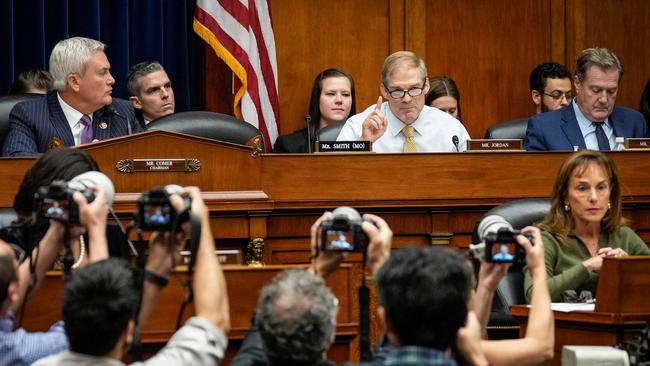
Congressional Republicans will subpoena the personal bank records of president Joe Biden’s son, Hunter, and his brother James, opening a fresh front in their efforts to prove the president benefited from an alleged influence peddling operation during his time as vice-president and after.
Republican House Oversight committee chairman James Comer made the announcement at the end of the first hearing of an impeachment inquiry launched earlier this month by house Speaker Kevin McCarthy.
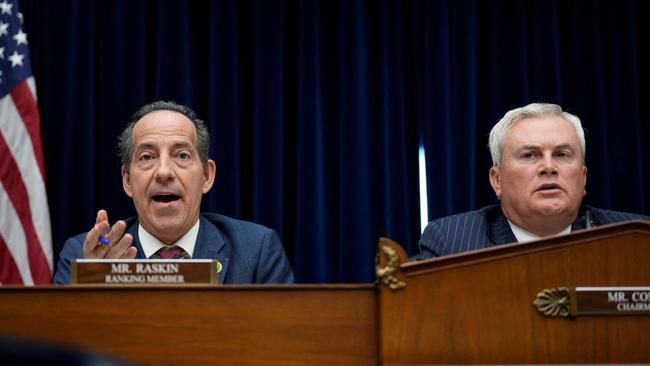
Mr Comer said Republican-controlled committees had already “uncovered a mountain of evidence revealing how Joe Biden abused his public office for his family’s financial gain”, referring to various pieces of evidence that Republicans argue justify the rare step of holding an impeachment inquiry.
“The next step is gaining insight into where the Bidens’ foreign money ended up, therefore today, I will subpoena the bank records of Hunter Biden, James Biden, and their affiliated companies,“ Mr Comer said after a marathon hearing lasting several hours.
“You may be selling that there‘s no evidence, but let me assure you, the American people aren’t buying what you’re selling,” Mr Comer said to the assembled media at the end of the hearing.
For months Republicans have argued that unearthed bank records and documents from the FBI, claims by IRS whistleblowers, and congressional testimony from Hunter Biden business associate Devon Archer, strongly suggested Joe Biden was part of a complex influence peddling operation spearheaded by his son Hunter, across numerous countries, over many years.
“Vice-president Biden had coffee with Jonathan Li in Beijing. He talked with him on the phone and even wrote a college recommendation letter for Mr Li‘s children,” Mr Comer said at the start of Thursday’s (Friday’s AEST) hearing, referring to one new piece of evidence Republicans had released a few days earlier.
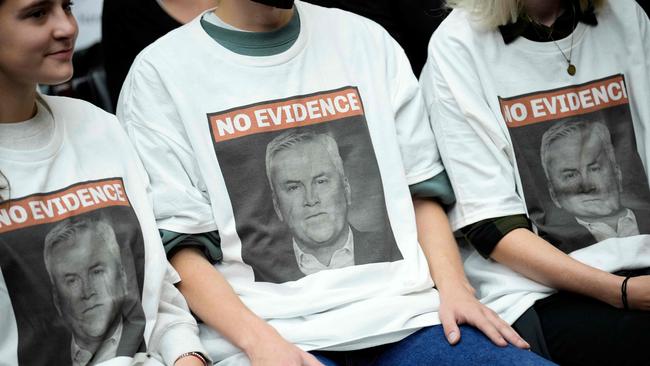
In 2019, Hunter Biden received a $US250,000 wire from Chinese national Mr Li, which originated in Beijing, and Joe Biden’s Wilmington, Delaware home was listed as the beneficiary address for the wire, according to bank records obtained by Mr Comer’s committee.
It’s one of many examples of financial transactions the committee has produced, involving up to 9 members of the Biden family, numerous shell companies, and up to US$20 million in payments from foreign entities, that fall short of directly implicating the president, according to the hearing’s four witnesses.
“I do not believe that the current evidence would support articles of impeachment. That is something that an inquiry has to establish,” said law professor Jonathan Turley, the strongest witness for the inquiry’s Republican majority.
“Many people now accept that what Hunter Biden did was rather raw and open, influence peddling, so the only question is, was the president involved,” he added, referring to the younger Biden’s position on the board of Ukrainian gas company Burisma while his father was vice-president.
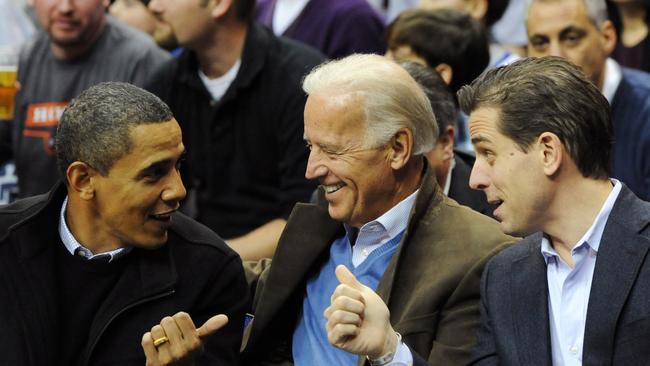
The potentially most damaging accusation against Mr Biden is that he pressured Ukraine to sack its chief prosecutor Viktor Shokin in early 2016 under pain of withholding US$1 billion in US aid, at least in part to help Burisma, which was being investigated by Shokin at the time.
The White House blasted the hearing as a waste of time given the lack of direct links between payments and Mr Biden, and the supposedly more pressing issue of averting a US government shutdown, which could begin on 1st October unless congress agrees on a supply bill.
Professor Turley said payments to Joe Biden’s family members could still have been a benefit, legally, to President Biden. “This idea that you can have millions going to a politician‘s family and that’s not a benefit. I think it’s pretty fallacious,” he told the hearing.
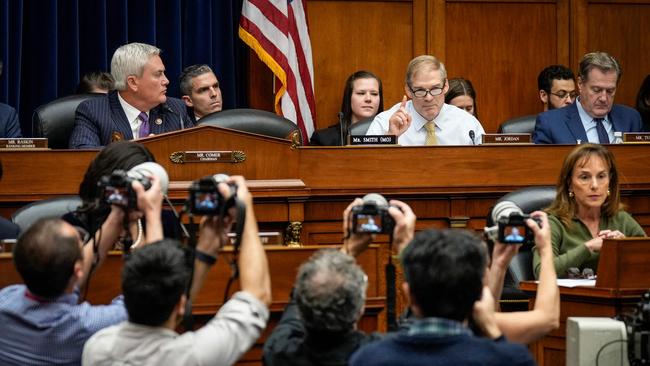
Democrat and Ranking member on the inquiry Jamie Raskin, a constitutional lawyer, who kept a ‘shutdown clock’ on his desk as a political prop, accused Republicans of double standards and subbed the hearing a “Seinfeld impeachment, about nothing”.
“Would it be fair to attribute … the US$25 million management fee every year that Jared Kushner budgeted to Donald Trump?” he asked, referring to a US$2 billion investment by Saudi Arabia into President Trump’s son-in-law Jared Kushner’s investment management fund six months after Mr Trump left the White House.
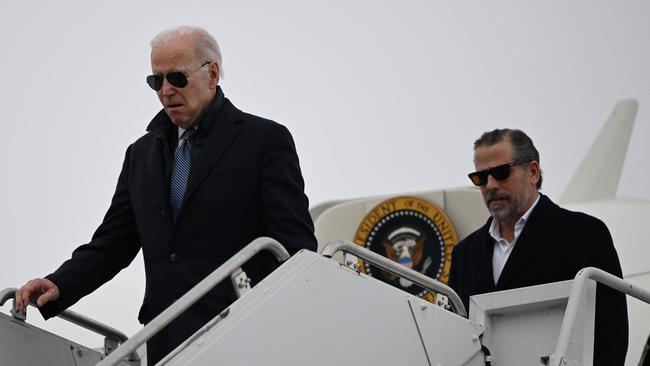
The renewed interest in Mr Biden’s alleged corruption, which goes back at least to 2019 when former president Trump asked Ukraine to investigate it in an infamous phone call to the Ukrainian president, stems from troves of correspondence found on Hunter Biden’s laptop, including references to payments of “10 per cent for the Big Guy”, a possible reference to Joe Biden.
Bruce Dubinsky, a forensic accountant and one of the four witnesses, told the hearing it was “very common” for illicit business operations to use aliases to cover up relationships.
“(But) I am not here today to even suggest that there was corruption, fraud or wrongdoing,” he said.
Former assistant attorney-general Eileen O’Connor, another expert witness, said ongoing investigations into Hunter Biden “must not be viewed in isolation, rather as part of a broad landscape of corruption”.
Mr Biden, who has consistently denied any wrongdoing, delivered a speech in Arizona during the hearing, reviving his stark warning about the threat posed to American Democracy by Donald Trump and his so-called MAGA movement.
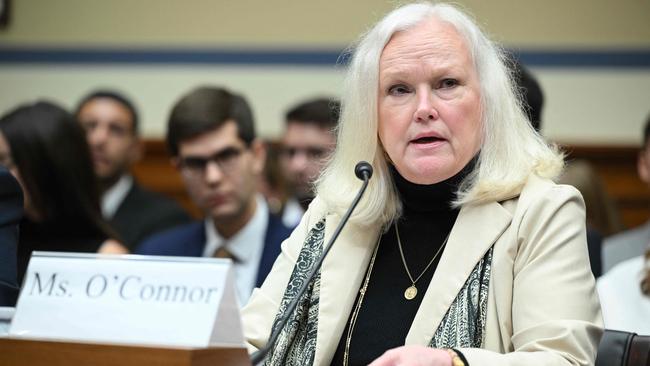
Mr Biden warned Americans against embracing “MAGA extremists” whose “extreme agenda, if carried out, would fundamentally alter the institutions of American Democracy as we know it”, a clue to the White House’s likely political strategy should Mr Trump secure the GOP nomination for president, as seems likely.
The impeachment inquiry would be unaffected by the shutdown, Mr Comer said.






To join the conversation, please log in. Don't have an account? Register
Join the conversation, you are commenting as Logout